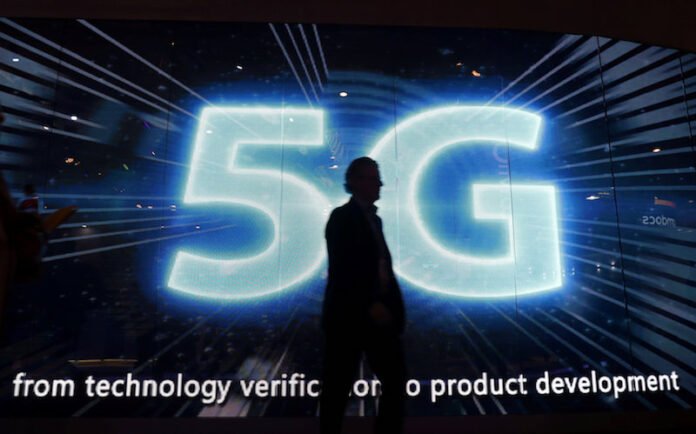Pejuang Youth’s Abu Hafiz Salleh Hudin and the party’s Treasury and Communications Bureau disputed the government’s assertion that using DNB to manage the country’s 5G infrastructure would lead to lower prices and faster connectivity. — Reuters pic
KUALA LUMPUR, Oct 12 — Pejuang Youth has urged the government to call off the establishment of Digital Nasional Berhad (DNB) to build and operate Malaysia’s 5G network, arguing that this would risk the future of Malaysia’s economic and digital industry.
Pejuang Youth’s Abu Hafiz Salleh Hudin and the party’s Treasury and Communications Bureau disputed the government’s assertion that using DNB to manage the country’s 5G infrastructure would lead to lower prices and faster connectivity.
He argued that DNB would incur additional costs as it must either build or lease new infrastructure, adding that it would be cheaper for existing telcos to undertake the development as they already have existing infrastructure they could use and share.
“Countries like Kenya, Russia and South Africa no longer practice Single Wholesale Network (SWN) policy, while Belarus, Mexico and Rwanda recorded heavy losses resulting from such policies.
“In fact, DNB will also pose other risks to local industries and consumers such as the safety and resilience of 5G networks that could lead to a single point of failure if these 5G networks are not built and managed properly,” he said in a statement.
Abu Hafiz said that without commercial terms for the 5G spectrum network, the government could lose a potential profit of RM5 billion, noting that in 2016, the government was able to collect over RM7 billion profits from the sale of spectrum networks between 900MHZ and 1800MHZ at no cost to set up any government-owned company.
“The sale of 5G spectrum to private telecommunications companies has benefited the Thai government at RM12 billion and Bangladesh at RM3.5 billion. When the Government says the country has no money, why is this way, which benefits the country, not being used?” Abu Hafiz questioned.
He said that as DNB was wholly owned by the Ministry of Finance (MoF), Malaysian taxpayers would be the ones to pay the price of any of its financial and operational management failures.
“To provide 5G network infrastructure, DNB has awarded an RM11 billion contract to a single company, Ericsson.
“Being aware of the fact that DNB is wholly owned by the Malaysian government through MoF, what is the debt repayment plan for the purpose of spending on building this 5G network?” he said.
He also argued that the DNB would weigh on the commercial potential of the country’s existing telcos, some of which were owned by national institutions such as the Employees Provident Fund, Permodalan Nasional Bhd, and Lembaga Tabung Haji, among others.
“The Malaysian government through government-linked companies already has strategic shares in Telekom Malaysia, Axiata, Celcom and Digi.
“Is it appropriate to set up another new company in the same industry? Isn’t it close to matching 1MDB’s modus operandi to the detriment of the government and the people of Malaysia?” he said.
On July 1, DNB partnered with Ericsson (Malaysia) Sdn Bhd to accelerate the deployment of Malaysia’s 5G network and ecosystem.
This concludes the rigorous tender exercise initiated in March 2021, DNB, which is a government-owned special purpose vehicle set up to build, own and operate Malaysia’s 5G infrastructure.
In addition, it said that DNB will securitise future cash flows from its wholesale business via sukuk programmes to finance all other network operating expenditures and to repay all vendor financing arrangements.


